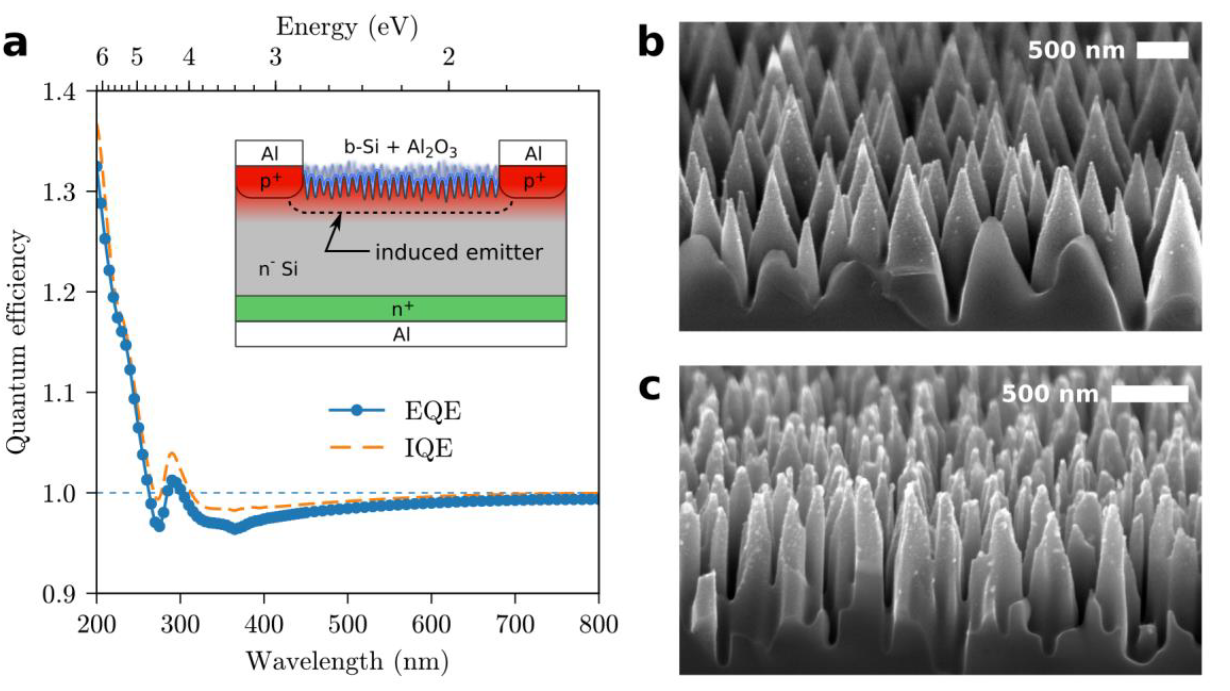We aim to develop CMOS image sensors with a novel nanostructured black silicon (b-Si) anti-reflection (AR) coating, which if successful would increase the quantum efficiency (QE) of silicon detectors to nearly 100% throughout the visible and NIR wavelengths, and even exceed 100% QE below 300 nm. For CMOS image sensors the nearly flat QE would be a breakthrough development, considering that traditional AR coatings are optimised only for a specific wavelength band. The study is needed to establish whether the b-Si process, presently used only on large area photodiodes, can be applied to established commercial backside-illuminated (BSI) CMOS image sensors, manufactured by our industrial partner Teledyne e2v. We plan to characterise the QE over the wavelength range 350-1100 nm, using methods previously developed for the JANUS camera on ESA’s JUICE spacecraft, and to establish whether the b-Si coating deteriorates the uniformity of the photoresponse and the dark current of the sensors. If successful, this project will represent a major advance in AR technology for pixelated sensors and would substantially improve the performance of future silicon detectors with commercial applications in aerospace, medical and automotive sectors.

